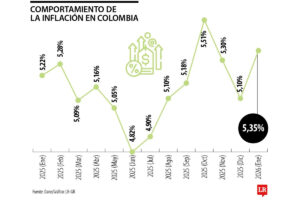Revised figures show that the UK’s economy registered zero growth between July and September as both the services and production sectors saw marked declines.
The UK economy remained stagnant in the third quarter of the year, with the quarter-on-quarter gross domestic product (GDP) growth rate coming in at 0%, according to the Office for National Statistics.
This was down from the previous quarter’s 0.4%, as well as below analyst estimates of 0.1%.
The decrease was mainly because of a lack of growth in the services sector, which was pulled down primarily by the insurance and financial sectors. Production also dropped 0.4%, primarily because of a fall in gas, electricity, air conditioning and steam supply.
One of the major reasons for the lacklustre performance is due to increased fears of the UK heading towards a recession. These concerns have been exacerbated by the new UK Labour government implementing a number of changes impacting businesses, following its election back in July this year.
Some of the changes revealed in the Autumn Budget, such as higher employer national insurance contributions (NICs), have resulted in several companies rethinking their budgets, as the new year approches.
Alpesh Paleja, the interim deputy chief economist at the Confederation of British Industry (CBI), said on the CBI website: “There is little festive cheer in our latest surveys, which suggest that the economy is headed for the worst of all worlds – firms expect to reduce both output and hiring, and price growth expectations are getting firmer.
“Businesses continue to cite the impact of measures announced in the Budget- particularly the rise in employer NICs – exacerbating an already tepid demand environment.”
Exports also dropped 0.5%, along with a 2.5% decrease in imports, however a rise in net trade slightly offset the decline.
Construction activity picked up in the third quarter of the year, although not as much as expected.
Household spending in the third quarter stayed the same as the previous quarter, at 0.5%, as more consumers held back on spending, especially with Christmas and other festive expenses coming up.
Although government consumption rose far less than expected, business investment jumped 1.9% in Q3 2024, compared to 1.2% in the previous quarter.
Businesses likely to rely on government for reason to invest in 2025
Paleja also said: “As we head into 2025, firms are looking to the government to boost confidence and to give them a reason to invest, whether that’s long overdue moves to reform the apprenticeship levy, supporting the health of the workforce through increased occupational health incentives or a reform of business rates.
“In the longer term, businesses will be looking to the industrial strategy to provide the stability and certainty which can unlock innovation and investment – and provide that much needed growth for the economy which can deliver prosperity for firms and households alike.”
Given the ongoing global geopolitical uncertainty caused by the Russia-Ukraine and Israel-Palestine wars, escalating trade tensions between the EU and China, as well as the US and China, it is likely that businesses may potentially be more financially and strategically cautious in 2025.
If so, the UK government may need to take significant moves to encourage spending and innovation again, along with tax breaks and other incentives.
Información extraída de: https://www.euronews.com/business/2024/12/23/uk-economy-stagnates-as-business-leaders-warn-of-worst-of-all-worlds







